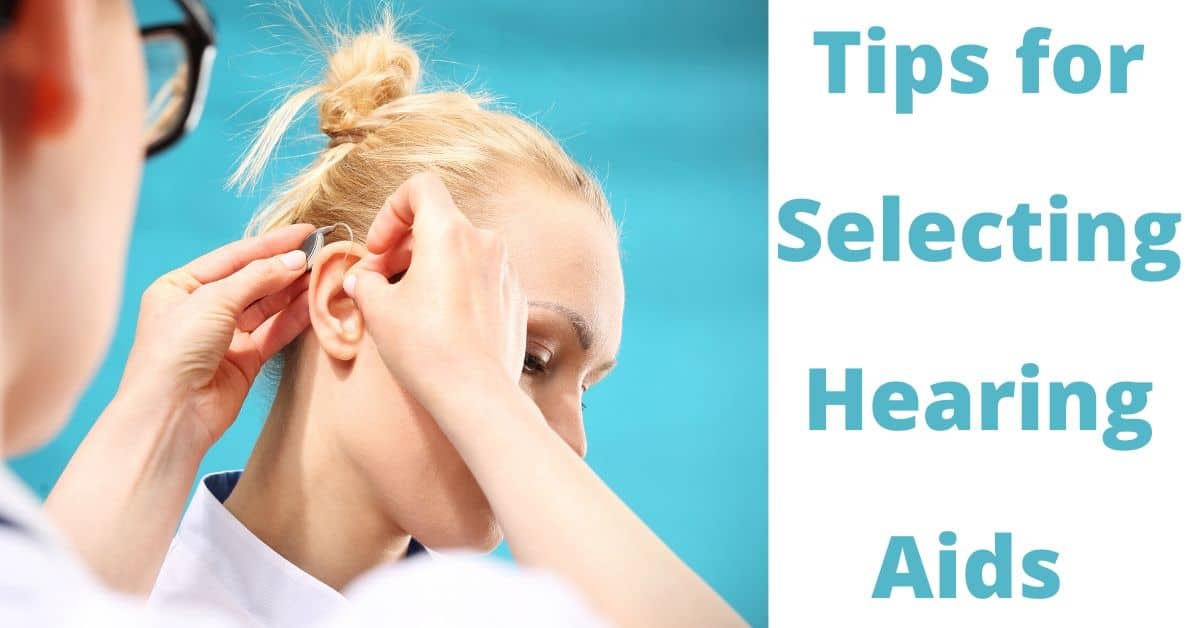- The Impact of Hearing Aids on Veterans’ Lives - February 15, 2024
- Hearing Health: A New Year’s Resolution for a Vibrant Life - January 16, 2024
- Unraveling Misconceptions About Hearing Loss - December 12, 2023
The very fact you’re thinking of getting a hearing aid means you’re already well on your way toward better hearing.
Hearing aids won’t restore your hearing, but since they make soft sounds easier to hear, they can be incredibly beneficial. Catching these sounds can boost your ability to interact, be they one-on-one or in group settings, feel engaged when you’re at work, or watch TV when you want to relax on your couch.
As this is your first foray into the hearing aid world, you might be unsure where to start. If this is you, we’ve got you covered. Here’s a guide to what to consider when selecting a hearing aid.
Learn about how a hearing aid works.
All hearing aids consist of the same basic parts irrespective of style and model: microphone, microchip, amplifier, battery, and receiver.
Like your natural hearing process, hearing aids pick up sound from your environment, which is analyzed and amplified. These precise sound signals are sent to your brain to interpret as identifiable sounds. The arrangement of the above components varies depending on the hearing aid style and model.
Consider your lifestyle.
If you have a very active lifestyle, you may need a particular kind of hearing aid to deal with the demands of movement and moisture in and around the ears. Or you might spend a lot of time in restaurants or bars where noise can be a challenge to understand the conversation in front of you. Others would still like to be able to enjoy music, movies, or television. It’s good to know what you like doing best so that your hearing aids can be best suited to help you.
Consider the full range of features.
There are many hearing aid features to consider. Here are just a few:
- Telecoil: A telecoil is a small device that connects wirelessly to phones that are compatible with hearing aids and public address systems such as conference rooms, concert halls, museums, taxis, and even metro trains. Telecoils can help people with moderate to profound hearing loss to better understand a speaker’s voice by making it louder and streaming it straight into the user’s ear, removing all reverberation and echo.
- Rechargeable batteries: The newest rechargeable batteries offer an entire day worth of use with just one charge.
- Directional Microphones: This feature helps you to converse in noisy environments by making the audio signal in front of you louder.
- Feedback suppression: Suppressing feedback helps to quell high-pitched whistling sounds.
- Digital Noise Reduction (DNR): This feature blocks some background noise and improves listener comfort and communication in noisy environments.
Consider which hearing aid type is right for you.
There are several different types of hearing aids available on the market. They range from smallest to biggest here:
- Invisible-in-canal (IIC)
- Completely-in-canal (CIC)
- In-the-canal (ITC)
- In-the-ear (ITE)
- Receiver-in-canal (RIC)
- Behind-the-ear (BTE)
The smaller devices are unsurprisingly the most discreet. They also have a more natural sound. The closer they sit inside the ear. The larger devices are easier to handle, have batteries that tend to last longer and are large enough to house a bigger range of features.
The right one for you depends on what you consider most important. That’s why it is essential to consult with a hearing professional.
Take a hearing aid test drive.
Once you meet with us, you can take a hearing aid pair for a ‘test drive’. This is particularly useful if you’re new to buying hearing aids as it gives you a sense of what you can expect.
Hearing aids are an investment, and it is vital to take the time to make sure the device is right for your needs. The only way you can know which hearing aid is right for you is to experience them in your everyday life.
Treating Hearing Loss
We are committed to helping get on the path to better hearing. From the first check and consultation to necessary follow-up appointments, we want to make sure that your devices work seamlessly into your life, and that you are satisfied. Contact us today to schedule an appointment!

